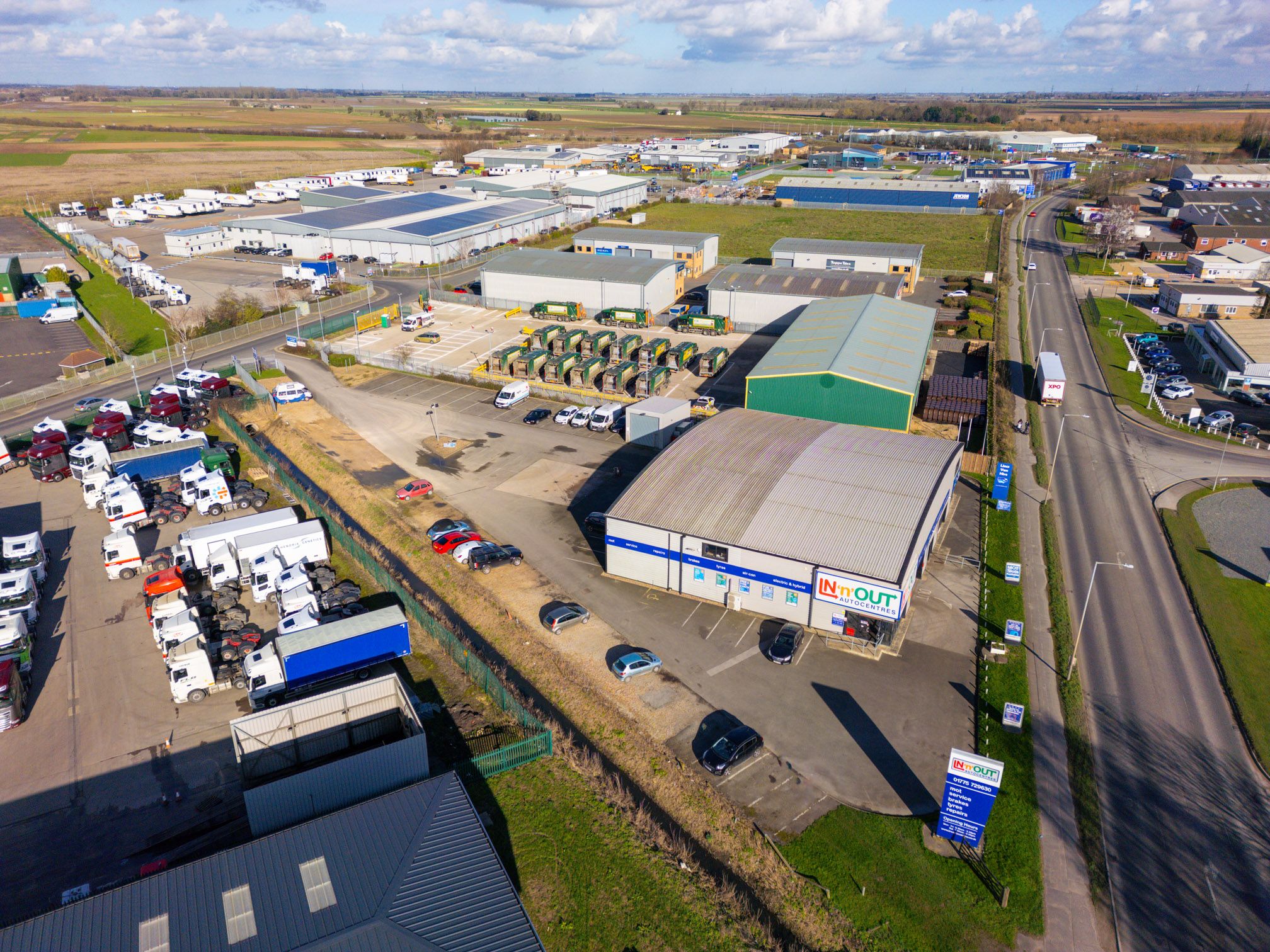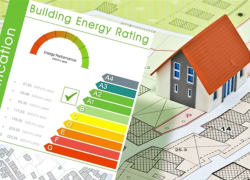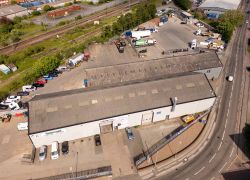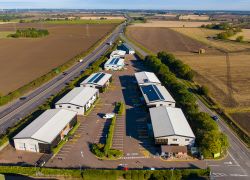Renting Commercial Property

Renting commercial property is a crucial step for many businesses. It offers the flexibility to adapt to changing needs without the long-term commitment of buying. Whether you’re a startup looking for your first office or an established enterprise needing more space, understanding commercial leasing is essential. Harlaxton Estates, with its extensive portfolio and local expertise, will guide you through this process, ensuring you find the perfect space for your business needs.
Understanding Renting Commercial Property
Renting commercial property in the UK involves several key considerations to ensure the chosen space meets your business requirements and financial constraints. Understanding lease terms, property types, and associated costs is crucial for making an informed decision. Whether you’re leasing office space, a retail location, or an industrial unit, having a clear grasp of the basics will help you avoid common pitfalls and secure the best possible deal for your business.
Benefits of Renting
Flexibility in Location and Lease Terms
Renting allows businesses to choose locations that align with their operational needs without the long-term commitment of purchasing property. Lease terms can often be negotiated to fit the specific requirements of the business, offering greater flexibility in terms of duration and conditions.
Lower Upfront Costs
Compared to buying a property, renting significantly reduces initial capital outlay. This is particularly beneficial for startups and small businesses that need to allocate resources towards growth and operations rather than real estate (Business Yield) (Pall Mall Estates).
Reduced Maintenance Responsibilities
In many rental agreements, landlords take on the responsibility for property maintenance and repairs. This reduces the burden on the tenant, allowing them to focus on running their business. However, it's essential to clearly understand the terms of the lease to know which maintenance tasks fall under the landlord's purview and which are the tenant's responsibility.
Key Considerations Before Renting
Location and Property Type
Importance of Location
The location of your commercial property can significantly impact your business success. Proximity to clients, customers, and suppliers, as well as access to transportation links, are crucial factors to consider. For example, retail businesses benefit from high footfall areas, while distribution centres need excellent transport links.
Types of Commercial Properties
Different businesses have different needs. Office spaces, retail locations, industrial units, and serviced offices each offer unique advantages. For instance, an office space might provide a professional setting with meeting rooms and high-speed internet, while an industrial unit may offer large open spaces for manufacturing or storage.
Cost Factors
Rental Costs
Rental costs are a major factor to consider. Typically, rent is paid quarterly in advance, and additional costs such as service charges and insurance may apply. It is crucial to understand the full extent of these costs to budget effectively.
Professional Fees
Hiring a surveyor or a legal advisor can be a wise investment to ensure the lease terms are fair and in your favour. However, these services come at a cost, often a percentage of the annual rent, plus VAT and disbursements.
Business Rates
Business rates, calculated based on the rental value of the property, are another significant expense. These rates are reviewed periodically and can vary depending on the location and type of property.
The Leasing Process
Steps to Locate a Suitable Property
The first step in renting commercial property is to identify a location that aligns with your business needs. Conduct thorough research into local market dynamics, such as property availability, tenant demand, and rental rates. Determine your specific property requirements, including size, layout, and amenities, to ensure the space can accommodate your business operations. Consider factors like high footfall for retail spaces or excellent transportation links for distribution centres.
Negotiating Lease Terms
Negotiation is a crucial part of securing a commercial property. Engage with the landlord or their agent to discuss lease terms, including rent, lease duration, and any potential rent-free periods or incentives. Ensure that the terms are flexible enough to accommodate your business's growth and operational changes. It’s often beneficial to involve a legal advisor to help negotiate favourable terms and to review the lease agreement thoroughly.
Key Components of a Commercial Lease
A commercial lease is a legally binding document outlining the terms and conditions of the tenancy. It typically includes details such as the lease term, rent amount, payment schedule, maintenance responsibilities, and any clauses related to subletting or breaking the lease. Understand these components to avoid potential conflicts and ensure the lease aligns with your business needs.
Legal Advice and Clause Review
Given the complexity of commercial leases, seeking legal advice is highly recommended. A legal expert can help you understand the implications of various clauses, such as break options and subletting rights, and ensure that the lease does not contain any unfavourable terms. This step can prevent costly legal disputes and provide peace of mind as you move forward with the lease.
Exchanging Contracts
Once the lease terms are agreed upon, the next step is to exchange contracts. This process involves finalising the legal documentation and making any necessary payments, such as deposits or advance rent. At this stage, the agreement becomes legally binding. Ensure that all contractual obligations are clear and that you have copies of all relevant documents.
Finalising the Lease
After exchanging contracts, the final step is to complete the lease by fulfilling any remaining requirements, such as providing proof of insurance or paying any additional fees. This process ensures that all legal and financial aspects are in order before you take possession of the property. Once completed, you can move into the space and start setting up your business operations.
Managing the Property
Tenant and Landlord Responsibilities
Understanding who is responsible for maintenance and repairs is critical to managing a commercial property effectively. Typically, the landlord is responsible for structural repairs, while the tenant handles interior maintenance and day-to-day upkeep. However, these responsibilities can vary based on the lease agreement. It’s essential to review your lease carefully and clarify any ambiguities with your landlord to avoid disputes.
Efficient Maintenance Management
To ensure the property remains in good condition, establish a routine maintenance schedule and promptly address any repair needs. This approach helps prevent minor issues from escalating into major problems that could disrupt business operations. For more complex repairs, communicate with your landlord to coordinate necessary work.
Importance of Regular Rent Reviews
Regular rent reviews are typically included in commercial leases to adjust the rent according to market conditions. These reviews can occur annually or at specified intervals. It’s crucial to understand the basis for rent adjustments, whether it’s linked to market rent or another index. Being aware of upcoming rent reviews allows you to budget accordingly and, if necessary, negotiate with your landlord.
Options for Lease Renewal or Exit
As your lease term nears its end, consider your options for renewing or exiting the lease. A lease renewal can provide continuity and stability for your business, especially in a location that is critical to your operations. Alternatively, if your business needs have changed, exploring other properties might be beneficial. Ensure that any renewal or exit clauses in your lease are clearly understood and that you comply with notice periods and other conditions to avoid penalties.
How Harlaxton Estates Can Help
Harlaxton Estates offers a diverse portfolio of commercial properties across Nottinghamshire and Lincolnshire, catering to businesses of all sizes and industries. Their local expertise ensures that they can provide tailored property solutions that meet specific business needs, from flexible lease terms to customisable spaces. Whether you require an office, retail location, or industrial unit, Harlaxton Estates leverages their extensive market knowledge to help you find the perfect property, facilitating smooth operations and business growth.
In addition to their robust property offerings, Harlaxton Estates provides comprehensive support services, including lease negotiation assistance, maintenance management, and legal advice on property matters. Their customer care team is dedicated to ensuring client satisfaction, addressing any concerns promptly, and offering guidance throughout the leasing process. By partnering with Harlaxton Estates, businesses gain access to a reliable partner focused on providing exceptional service and support, allowing you to concentrate on your core business activities.
Conclusion
Renting commercial property is a significant step for any business, offering flexibility and reducing upfront costs compared to purchasing. However, understanding the complexities of lease agreements, maintenance responsibilities, and cost factors is crucial. Harlaxton Estates, with its extensive portfolio and customer-focused approach, provides the expertise and support needed to navigate these challenges successfully. By partnering with Harlaxton Estates, businesses in Nottinghamshire and Lincolnshire can find tailored property solutions that align with their operational needs and growth objectives.
Choosing the right commercial property can make a substantial difference in the success of your business. With Harlaxton Estates' comprehensive services and local expertise, you can ensure that your business is well-positioned to thrive in a competitive market. Contact Harlaxton Estates today to explore how they can help you find the perfect commercial property to meet your needs.




